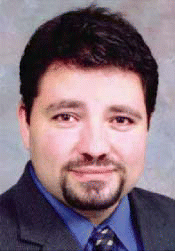WASHINGTON, DC-Dysphagia is the dominant cause of morbidity and mortality in patients treated by otolaryngologists, and in fact, more people die from aspiration pneumonia following stroke than from all head and neck cancers combined.
Explore This Issue
November 2007Dysphagia is challenging and frustrating to treat, and there is no good evidence for many of the modalities we use to treat it, stated Albert L. Merati, MD, Director of the Laryngology Service in the Department of Otolaryngology-Head and Neck Surgery at University of Washington Medical Center in Seattle. Dr. Merati moderated a session on current nonsurgical and surgical options for the management of dysphagia and aspiration, during which he noted that nearly all surgical interventions are directed at restoring glottic competence or improving outflow from the pharynx to the esophagus.
Multidisciplinary Team
Dysphagia should be managed by a multidisciplinary team, said the next speaker, Donna S. Lundy, PhD, Director of the Vocal Disorders Laboratory at the University of Miami in Miami, FL.
Obtaining a thorough history will provide some idea of the anatomical site(s) involved in swallowing difficulties. Patients should be asked for a detailed description of the onset of the problem and whether it is progressive, intermittent, or stable. Ask about associated neurologic symptoms and generalized debilitation, Dr. Lundy continued. Other areas to probe include weight loss and appetite, changes in diet to omit foods of certain consistencies, the presence and timing of coughing and/or choking, whether nasal regurgitation is present when swallowing, and location of any associated pain.
Bedside evaluation provides additional information on the locus of the problem. Assess the patient’s readiness for oral feeding and the oral reaction to various food consistencies. However, bedside evaluation is not enough, Dr. Lundy said, because 50% of aspiration is silent.
Bedside evaluation does not provide information on physiology of swallowing or the nature of dysphagia. It does not allow you to determine whether the patient can respond to various maneuvers, she said.
The presence of aspiration signals abnormal oropharyngeal function. Remember, aspiration is a symptom and not a diagnosis, she emphasized. You need to determine the etiology of the dysphagia and the efficacy of various maneuvers.
Physiological Assessment
The gold standard for oropharyngeal physiological assessment is the modified barium swallow (MBS). This is the safest and most efficient diagnostic procedure and the results are predictive of the risk for aspiration pneumonia, Dr. Lundy commented.

Leave a Reply